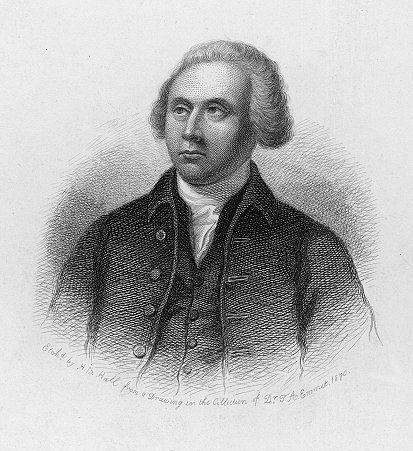Thomas Nelson, Jr. was a Virginian statesman and delegate to the Continental Congress.

Thomas Nelson, Jr. was a Virginian statesman and delegate to the Continental Congress.
Public domain image.
Thomas Nelson Jr. was born on December 26, 1738 in Yorktown, Virginia. Thomas, Jr. was named after his grandfather, who was an immigrant from England. Thomas’ father, William Nelson was a governor and a colony leader in Virginia.
As a boy, Thomas was sent to England to receive an education. In 1758, Thomas Nelson, Jr. studied at Cambridge University and graduated after two years. In 1762, Thomas took the lovely Lucy Grymes (niece of Peyton Randolph) to be his wife.
The pair had 11 children. Nelson found himself elected to the Virginia House of Burgesses in 1774, but it was dissolved that same year by the British governor Lord Dunmore because of their angry stance against the closure of the Port of Boston. Thomas Nelson sent some of his own money sending supplies to Boston and arranged a “Yorktown tea party” like the one in Boston. Nelson himself threw two half-chests of tea into the York River.
He was part of the Virginia provincial convention that same year, and then created the Virginia Militia and became their first Commander. Thomas was elected to serve in the first Continental Congress, but his service was cut short in 1776 when an extreme illness forced him to resign in 1777. He was reelected to the second Continental Congress. He took ill again, but he returned to sign the Declaration of Independence later that year.
In 1781, he was elected Commander in Chief of the Virginia Militia and Civil Governor of Virginia after Thomas Jefferson declined. The southern colonies were under siege, and General Nelson commanded both civil and military until they were a formidable power. His militia took part in the Siege of Yorktown.
Thomas Nelson, Jr. continued to serve his country until his death on January 4, 1789. His obituary finished with this quote:
If, after contemplating the splendid and heroic parts of his character, we shall inquire for the milder virtues of humanity, and seek for the man, we shall find the refined, beneficent, and social qualities of private life, through all its forms and combinations, so happily modified and united in him, that in the words of the darling poet of nature, it may be said:
His life was gentle: and the elements so mixed in him, that nature might stand up And say to all the world–this was a man.


